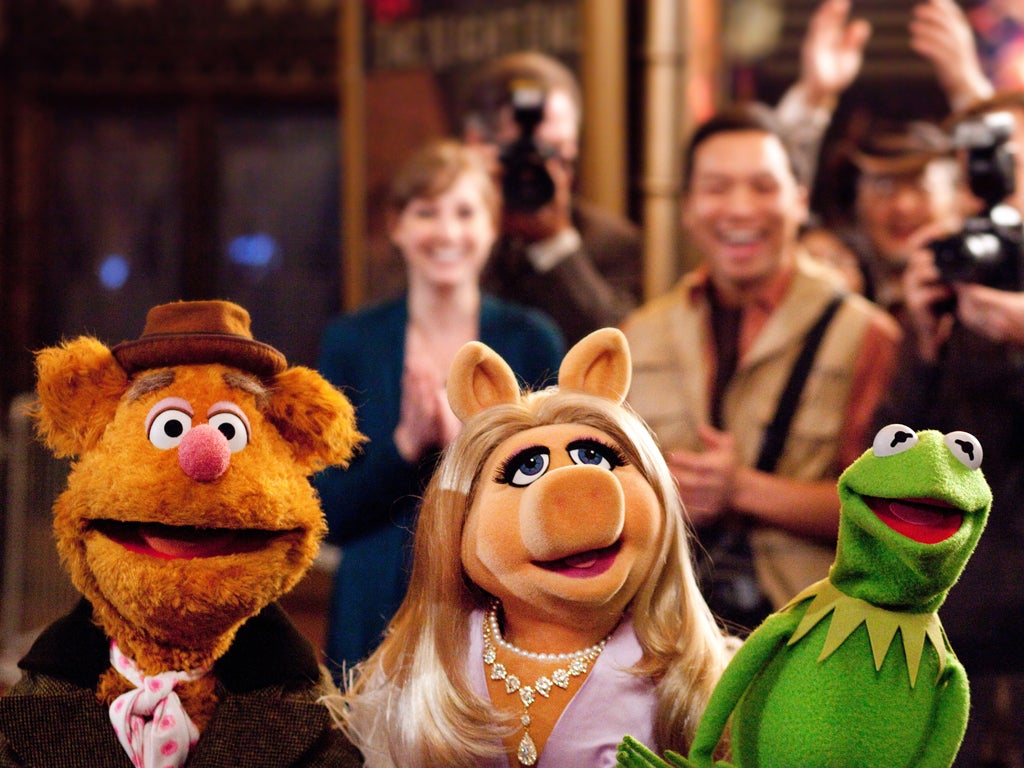Three years ago, following the double-whammy of Knocked Up and Forgetting Sarah Marshall, the writer and actor Jason Segel found himself elevated to the status of Bright Young Thing.
He was duly invited to a "development meeting" by some senior suits at Disney who asked if there were any dormant "assets" from their back catalogue in which Segel might be interested. He didn't have to think long to come up with an answer: the Muppets.
The end product of this fruitful discussion has been garnering rave reviews. Segel's all-new Muppet movie, co-starring Amy Adams and a lot of creatures made largely from felt, is a smart, joyous, and often extremely funny addition to the oeuvre of Kermit the Frog and friends.
It was made for $45m, has already banked almost three times that amount, and is nominated for an Oscar thanks to sublime musical interludes by Bret McKenzie, of Flight of the Conchords. And it deserves the success: Rotten Tomatoes, the influential website which ranks movies according to critical acclaim, has declared it the best studio movie of 2011.
High praise indeed. But the re-emergence of Kermit and Miss Piggy also begs a question: what, exactly, keeps the Muppets fresh and funny, after all these years? How can a franchise that's been mothballed since 1999's Muppets in Space be hot again? And in the era of CGI, why are puppets still the stuff of a box-office hit?
Segel is hardly alone in believing in the timelessness of the Muppets. The new film features enthusiastic cameos from a slew of modish comic stars (including Jack Black, Sarah Silverman, and Zach Galifianakis). They are, in a way, paying tribute to an institution which shaped their craft.
To understand why requires a minor history lesson. The Muppets were created by Jim Henson, the man behind Sesame Street. His original TV show was made in the UK between 1975 and 1981 (after being rejected by US networks), meaning that the American writers were thrown out of their comfort zone into a Britain in the midst of a comedy revolution.
"I can't help but think that when those guys wrote the Muppet show in the 70s, they used to go home at the end of a day's work and watch The Goodies, or Monty Python," says James Bobin, the new film's British director. "If you watch it now, it's way more surreal than any American show at the time. It's a post-Python 70s show."
If the timing was right, so was the product. The Muppet world revolves around highly stylised characters, who manifest human emotions and adhere to strict, but artificial rules of behaviour. Similar conceits underpin The Simpsons, or Family Guy. These days, it's a well-worn technique. Back then, it was revolutionary.

Watch Apple TV+ free for 7 days
New subscribers only. £8.99/mo. after free trial. Plan auto-renews until cancelled

Watch Apple TV+ free for 7 days
New subscribers only. £8.99/mo. after free trial. Plan auto-renews until cancelled
Like those shows, Muppets speak to both children and adults. "Henson never wrote down to kids; he wrote up to adults," is how Bobin puts it. His work was full of "meta" conceits; characters would occasionally break the fourth wall. "As a kid one of the reasons you enjoy it is because of a sense that there's something you don't understand."
The Muppets retain the power to spark deep feelings. The movie is currently at the centre of heated viral controversy in the US, after a Fox commentator claimed that its villain, an oil baron called Tex Richman, promotes a left-wing agenda to children.
Bobin says that "to take that message from the film is an extraordinary way to look at the world," adding that the TV series Dallas,also features an oil magnate as its baddie, yet was never accused of promoting socialism. Politicising the Muppets: "makes me really sad." Like so many people who work in comedy, Bobin regards them as part of his soul.
'The Muppets' is on general release
Subscribe to Independent Premium to bookmark this article
Want to bookmark your favourite articles and stories to read or reference later? Start your Independent Premium subscription today.


Join our commenting forum
Join thought-provoking conversations, follow other Independent readers and see their replies